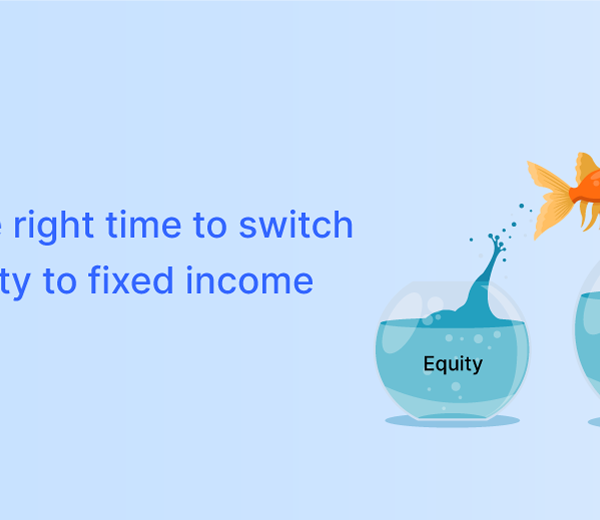Imagine your money working tirelessly, generating wealth while you sip your morning coffee. That is the dream, right? Well, it is not just a dream. It is the reality of smart financial planning.
In our fast-paced financial landscape, understanding terms like assets and gains is not just wise but crucial. Yet, for many, diving into the depths of financial assets can be like navigating a complex maze.
In this article, we will explore and unravel the mystery of “Income from Assets” and “Gains.” They are the keys to unlocking your wealth’s potential. So, grab your financial compass, as we explore the difference between these two concepts and demystify the world of assets and gains.
We understand that managing your finances efficiently requires a comprehensive approach. Koshex offers hyper-personalized insights and seamless transactions to help you make the most of both income from assets and gains. Sign up today!
What Are Assets?
Assets are your investments, properties, and anything of value that you own. These financial investments play a crucial role in building your wealth. Assets come in various forms, from real estate and stocks to bonds and savings accounts.
What Are Gains?
Gains, on the other hand, are the profits you make when you sell an asset for a higher value than what you paid for it. Think of it as the reward for your wise investment decisions. Capital gains can come from various sources like selling stocks, real estate, or even artwork.
Gains are an exciting part of financial planning because they represent the returns on your investment. What’s more is that gains can be taxed at a lower rate than regular income, making them an attractive avenue for growing your wealth.
Koshex allows you to buy mutual funds, and digital gold, and invest in smart and fixed deposits, providing you with various avenues to maximize your earnings. Sign up Today!
The Relationship Between Assets and Gains
Now, here’s where it gets intriguing – some assets wear a dual hat. They not only appreciate in value (capital gains) but also provide you with regular income. These are the true juggernauts in your financial arsenal, giving you the best of both worlds.
Income from Assets: A Predictable Avenue of Earnings
Income from assets is the dependable, often predictable, stream of earnings that your assets generate. It is the cash flow you receive regularly from investments and holdings, which can play a significant role in your financial stability. Think of it as a regular allowance that your assets provide, allowing you to maintain your lifestyle or reinvest for greater financial growth.
Common examples of income from assets include rental income from real estate investments and dividends from stocks. Rental income arrives from your properties, while dividends represent your share of a company’s profits.
One of the key advantages of income from assets is its reliability. Unlike a paycheck, which might be subject to changes or job security concerns, income from assets can often be counted on as long as your investments remain sound.
This steadiness can act as a financial safety net, ensuring you have money to cover your essential expenses even in challenging times.
Myths about Income from Assets and Gains and how it impacts financial choices
Myth 1: Income from assets and gains are the same
Income from assets refers to regular earnings generated by assets like rental income or dividends, while gains are usually associated with the increase in the value of an asset over time, often realized when you sell it.
Myth 2: All income from assets is passive and requires no effort
Income from some assets, like dividends from stocks, may seem passive. However, it involves initial research, investment decisions, and ongoing monitoring.
Real estate investments, for example, require active management, such as property maintenance and tenant relations.
How Misconceptions Impact Financial Choices
Misunderstanding can lead to poor financial decisions
When individuals confuse income from assets with gains or have unrealistic expectations about the stability of passive income, they may make investment choices that don’t align with their financial goals.
Missed opportunities for wealth-building
Failing to recognize the potential of both income from assets and gains results in missed opportunities for diversifying income streams and growing wealth over the long term.
How to Use Assets and Gains in the Portfolio?
The art of investing in financial assets lies in striking the right balance between income and gains in your portfolio. Too much emphasis on income, and you might miss out on the growth potential.
Conversely, a portfolio overly focused on gains could leave you financially vulnerable in the absence of regular income because gains are not guaranteed and can be subject to market volatility.
A well-balanced portfolio considers your financial goals, risk tolerance, and time horizon. It allocates assets strategically, ensuring that you have a reliable stream of income to cover your immediate needs while harnessing the power of gains to secure your long-term financial future.
So, when you invest in a financial asset, remember that it is not just about what you gain today but also about the income it can provide for your journey and the gains that will take you to your desired financial destination.
Final Takeaways
In the world of finance, understanding the distinctions between income from assets and gains is important. Assets are your financial allies, while gains are the rewards for your smart investment decisions.
Income from assets offers predictability, acting as a steady stream of earnings that can safeguard your financial stability. On the other hand, gains, often realized when you sell an asset for a higher value, represent the growth potential of your investments.
Balancing these aspects requires aligning your financial goals, risk tolerance, and time horizon to create a blend of income and gains. The result is a financial journey where you have both a safety net and the potential for exponential growth.
Clarifying the misconception of income and gain is vital for making informed financial choices. Recognizing the differences between income from assets and gains and understanding their respective roles in financial planning can empower individuals to build a more resilient and balanced financial future.
Koshex is your trusted guide in offering hyper-personalized insights and seamless transactions to make the most of your assets and gains. Ready to embark on this journey? Sign up with Koshex today and chart your course to financial prosperity.
Frequently Asked Questions (FAQs)
Q1. What’s the key to successful financial planning with assets and gains?
Ans. Successful financial planning involves setting clear goals, diversifying your portfolio, and regularly monitoring and adjusting your investments to align with your objectives. A platform like Koshex can assist in this process through its hyper-personalized approach.
Q2. Can you give an example of an asset that provides both income and gains?
Ans: Real estate investment trusts (REITs) are an excellent example. They offer rental income from properties while also allowing investors to benefit from potential property value appreciation.









Leave a Comment